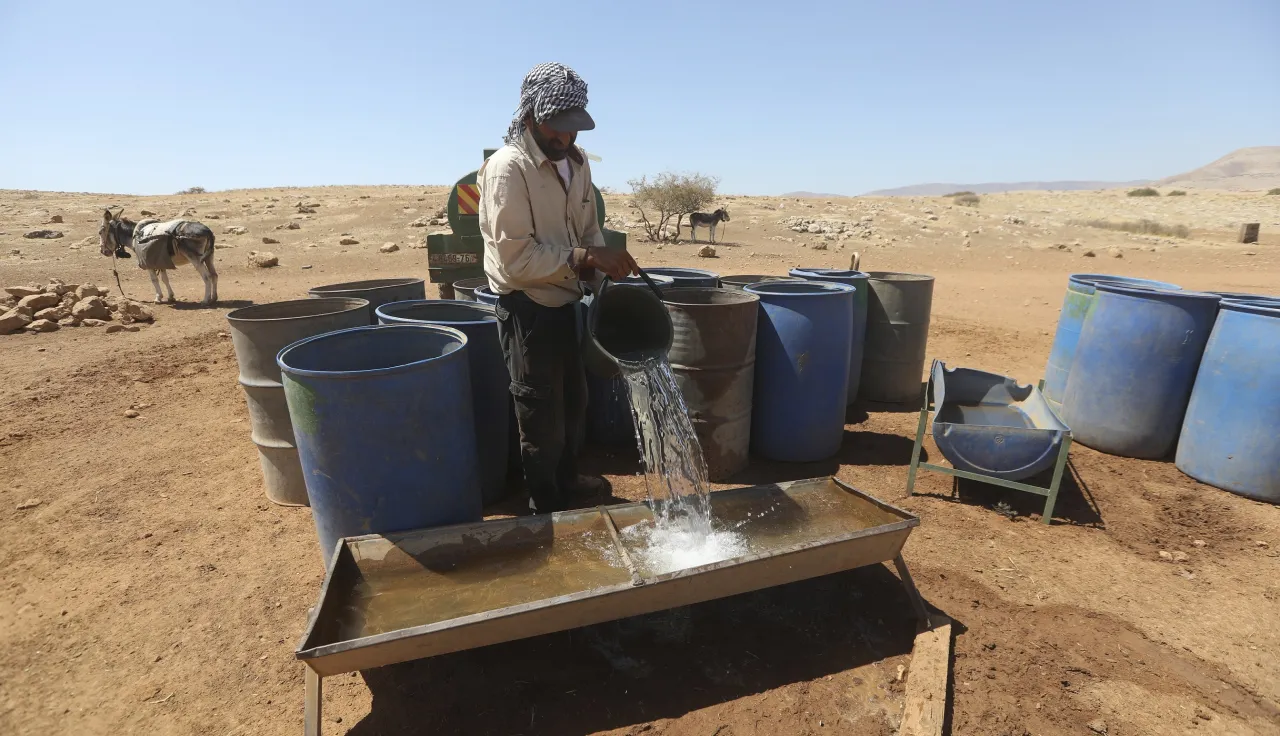ICRC launches a new fund to support long-term climate and environment initiatives

People living in countries affected by conflict are among the most vulnerable to the effects of climate change.
Combinations of conflict, food insecurity and accelerating climate change are triggering displacement, fueling tensions and creating humanitarian needs on a massive scale. We are seeing this up close in many of the places where we work – in the Sahel, the Horn of Africa and far beyond.
On the other hand, in delivering life-saving activities, humanitarian organizations like the ICRC produce greenhouse gases, generate (sometimes hazardous) waste and consume natural resources, such as water, which add to climate and environmental problems.
In 2021, the ICRC and the International Federation of Red Cross and Red Crescent Societies co-led a broad consultative process across the humanitarian sector to develop the Climate and Environment Charter for Humanitarian Organizations.
In line with the charter, the ICRC has adopted a first set of three organizational targets:
- By 2025, climate and environmental risks will have been factored into all programmes.
- By 2025, awareness, understanding and implementation of international humanitarian law protecting the environment will have been strengthened among states and parties to conflict through the ICRC's bilateral and multilateral engagement, publications and legal tools.
- By 2030, the ICRC's greenhouse gas emissions will have been reduced by at least 50% compared with 2018 levels.
To help us achieve these goals, we are launching the ICRC Climate and Environment Transition Fund
"This fund will be critical to enabling our transition to a climate-smart, adaptable and sustainable organization," says ICRC President Peter Maurer. "It will mobilize additional funding from public, private and philanthropic sources to support the many initiatives needed to accelerate this process. Our ambition is clear: we will lead by example and support the evolution of the humanitarian sector for strong climate action."
New Financing Models (NFMs) can support essential humanitarian activities
The ICRC Climate and Environment Transition Fund will enable this transformation through two complementary tracks:
- Track 1, starting in January 2022, will focus on the decarbonization of ICRC premises. As a first step, by greening our infrastructure in the seven countries where we consume the most generator fuel, thanks to an upfront investment of CHF 15.3 million, we will save up to 140,000 tons of CO2 emissions over 20 years and 30–50 million Swiss francs over the same period.
These savings will be redirected towards humanitarian activities. In the medium term, other ICRC in-country delegations will come on board, generating additional savings in CO2 and in financial resources. - Starting in 2023, Track 2 will encompass broader climate and environment activities. These include initiatives that aim at integrating climate and environmental risks into ICRC programs and operations, maximizing the environmental sustainability of our operations, and helping communities adapt to the combined effects of conflict and climate change. When these activities are carried out with our Movement partners, resources from the fund may support these partners directly.
The full funding requirements to align with ICRC's ambitions to 2030 including both tracks, will be assessed through 2022. The Fondation Lombard Odier provided early seed funding to do research work and design the Fund.
Ahead of the official launch on 17th January, the ICRC has received confirmation of close to CHF 3 million in contributions from the Foundation for the ICRC, the Government of Liechtenstein and the Swiss Agency for Development and Cooperation (SDC).
Because of the long-term nature of the project, the ICRC Climate and Environment Transition Fund will be structured as a multi-year vehicle. Its funding will consist of a blend of grants from public, private and philanthropic sources, in addition to a seed loan from the ICRC's own financial resources. A repayment and replenishment mechanism will be explored in 2022 for implementation in 2023. Opening the Fund to private investment will also be explored.
Other collaboration opportunities exist within the project. The ICRC is seeking engagement from across sectors, including within the Red Cross and Red Crescent Movement, private companies in the energy sector or with expertise in environmental sustainability, academia and non-profit organizations. Knowledge partners for the project include the Red Cross Red Crescent Climate Center and the Climate Action Accelerator.
ICRC and New Financing Models (NFMs)
The ICRC Climate and Environment Transition Fund is one in a series of innovative finance approaches that we are developing:
- To secure alternative sources of humanitarian funding and broaden the resource base
- To enable collaboration and partnerships across the humanitarian, development and private sectors, generating new ways of working
The ICRC Climate and Environment Transition Fund builds on the success and learnings of the Humanitarian Impact Bond (HIB). The ICRC has set an ambitious target to mobilize 5% of its income from innovative finance by 2030 – CHF 150 million per year.



